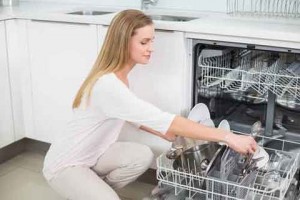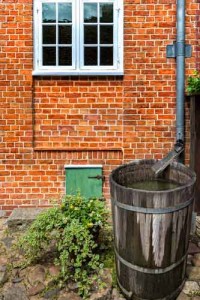Water Waste Concerns: Why Saving Water for Summer Months is Key
Water. We cannot live without it. Access to clean water is one of the hallmarks that separates civilized society from struggling third world populations. Despite this, the US rate of water consumption is at an unsustainable level, and states like California are beginning to see severe droughts year after year and reduced water supplies.
During the summer months, this is especially important. Here is a look at water usage both in and outside of the home, why it's important, and some of the ways that you can reduce it.
What is Water Waste?
In the simplest definition, water waste is using water that you didn't need to use. How waste is interpreted can differ based on the priorities of a person and culture (do you need to shower every day or wash your car every week?) However, there are also a lot of places where less water can be used during an unarguably essential activity, like flushing a toilet.
Due to the amount of water used for outdoor activities during the summer, the demand on water supplies is doubled during the warm, growing seasons of the year. This is not just true for neighborhoods, but also the farmers who may be depending on the same water source as you to grow their food.
Where Does Excess Water Use Occur?
 Water overuse can happen both in and out of the home. In your house, there are several places where waste is common due to the way we use water. Keeping the water running while brushing your teeth, or leaving the hose running so that cats can drink out of it during the day are two common ways. If you wash your dishes with constantly running water, it is another.
Water overuse can happen both in and out of the home. In your house, there are several places where waste is common due to the way we use water. Keeping the water running while brushing your teeth, or leaving the hose running so that cats can drink out of it during the day are two common ways. If you wash your dishes with constantly running water, it is another.
Dishwashers can be great water savers when they are packed to capacity, but half loads and incomplete loads often end up using more water than hand-washing would. Long showers or waiting a long time to start your shower after the water has warmed can waste tens of gallons each time it is done.
Older homes might lose water if there are small leaks in the system. These often go undetected for weeks to months, and they can not only waste water, but they can also cause significant damage to your home.
How do You Reduce Home Water Use?
Waste prevention is easy by being vigilant in some cases of water-wasting methods. In other situations where you regularly use water, an adjustment in the type of item you have can cut water consumption drastically. A front-loading washer uses a quarter of the volume less than a top-loader does.
Low-volume toilets, particularly those which let you choose between high and low water flushes, are an excellent way to save water. There are aerator devices that can be fitted to your faucets and showerheads to force water out at a higher pressure but a lower volume, giving you the feel of good pressure without using a lot of water.
Outdoor Water Waste
There are also a number of ways that you can waste water outdoors. During the summer, since you don't reduce any of your indoor water uses, this means at least double the demand on your local water supply. Here are some of the biggies:
 Swimming Pools: When properly sealed, pools are great. However, small cracks can be a cause for constantly refilling these large water repositories, which adds up over time. Also, pools left uncovered when users aren't in them will also lose a lot via evaporation.
Swimming Pools: When properly sealed, pools are great. However, small cracks can be a cause for constantly refilling these large water repositories, which adds up over time. Also, pools left uncovered when users aren't in them will also lose a lot via evaporation.
Car Washing: Even with a bucket and few water changes, there is no way to wash a car without using a lot of water. And there is no way to wash a car at home that doesn't use more water than a car wash (who recycles their water source between clients) will use.
Lawn and Garden: Sprinklers and high-level irrigation systems use a lot of water. By watering during the hottest hours of the day, you will lose much of that water to evaporation. Also, consider that water from above, like with sprinklers, gets as much to the leaves as it does the roots, which wastes water that won't be used by plants.
Outdoor Water Saving Tips
 Many of these are pretty standard. Seal your swimming pool seasonally and keep it covered when not in use. Use a car wash, even if it's the self-use version, which also recycles their water. Finally, the lawn and garden are probably your biggest opportunity to save water by making smart plant and irrigation choices.
Many of these are pretty standard. Seal your swimming pool seasonally and keep it covered when not in use. Use a car wash, even if it's the self-use version, which also recycles their water. Finally, the lawn and garden are probably your biggest opportunity to save water by making smart plant and irrigation choices.
Every climate has a number of plants designed to live in the amount of water that is in the area. If you live in the desert, these will be very different than if you live in New England or Miami. If you choose plants for your landscaping that are native, you will need little or no irrigation at all. If you do decide to use irrigation, consider drip irrigation and soaker hoses, which get most of the water to the roots, and water at sunrise and/or sunset.
Sprinkler systems for the grass that are low will have similar positive effects. However, if your area doesn't grow grass naturally, you may want to consider a different, more water friendly yard. Local nurseries will have some tips for you.
Advanced Water Saving Systems
If you want to go further into water conservation, consider some of the green technologies that are coming out today. Gray water repurposing systems will allow you to use water from places like your washers and direct it instead to your yard. It can go directly to the irrigation if you wash with cold water only, and use natural cleaners free of bleach and phosphates. Some systems will come with a switch to go between waste and repurposing, based on the substance and temperatures in your washer.
Also, consider watering your vegetable garden via rain barrels. Check your local regulations on this, as areas like the Pacific Northwest may ask that you let rain go free to save local salmon streams.
To learn more about available water conservation services in your Sherman Oaks, CA home, call Plumbing Brothers & Rooter Services at (855) 336-2679.

